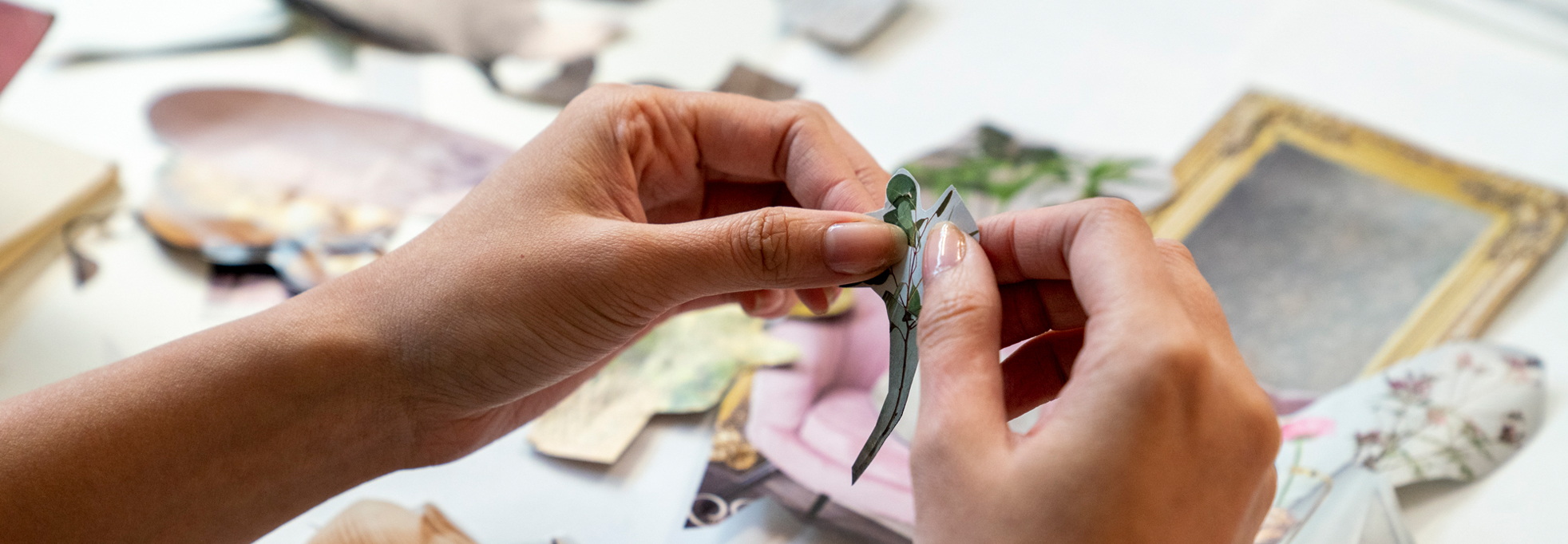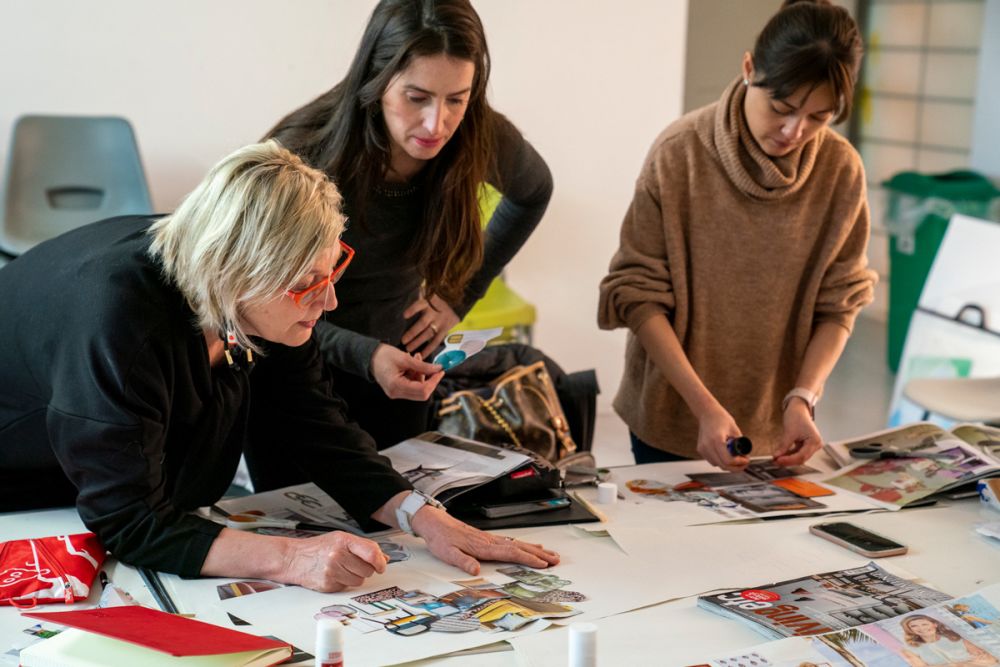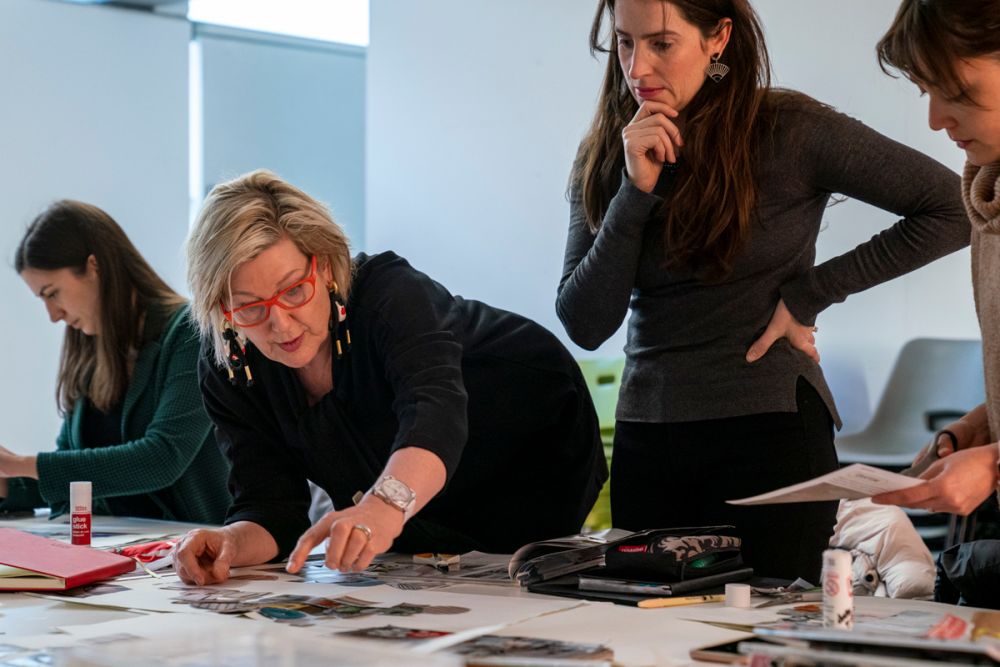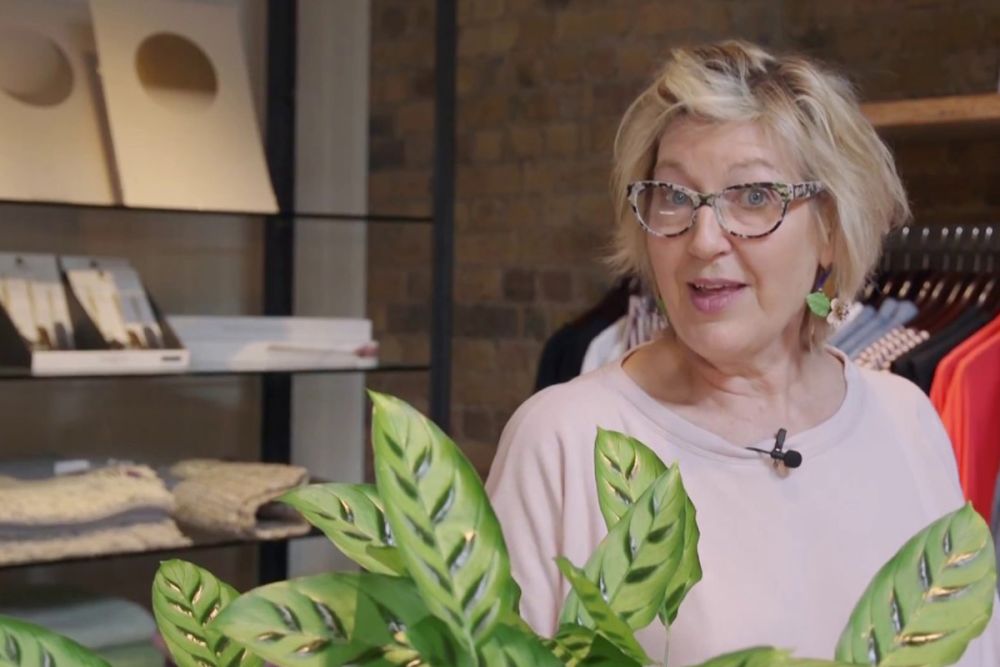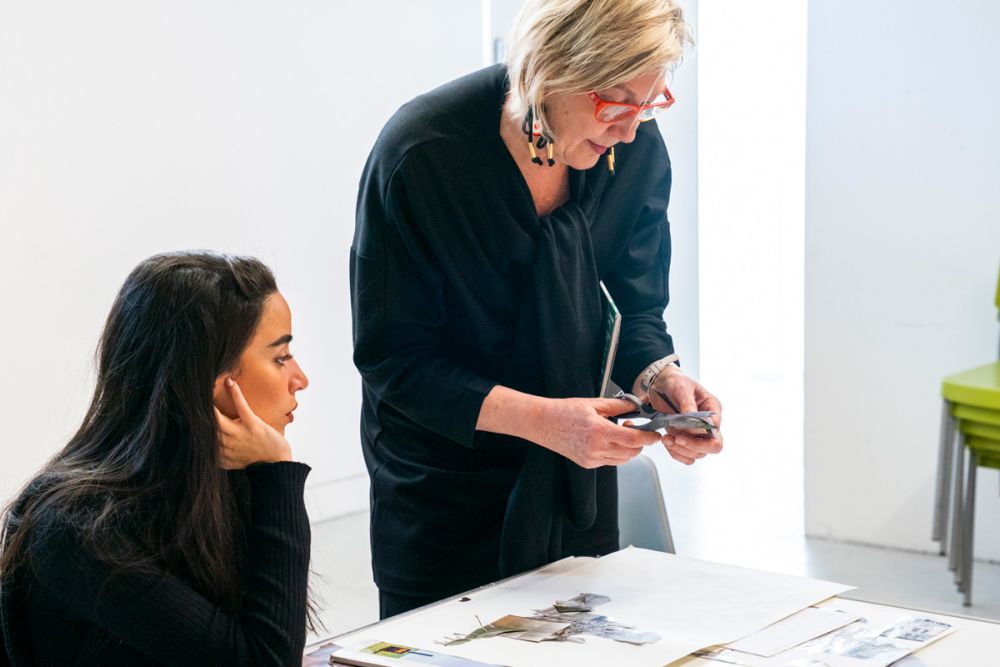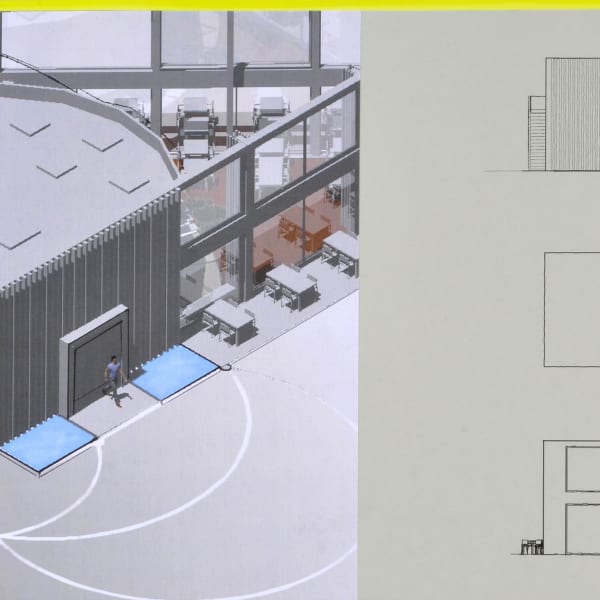We caught up with Chelsea College of Arts (UAL) Short Course tutor Debbie Flowerday speaking about a range of topics related to her career in visual merchandising and interior design. Debbie teaches, Designing Pop Up Shops and Events Online Short Course and Retail Display and Design Online Short Course.
Debbie Flowerday
Debbie Flowerday is a visual merchandiser, with extensive knowledge and experience of the display and visual merchandising industry, we asked how she began her career and she explained; 'Back in the day I actually worked at what we used to call apprenticeships, which is a three-year training course - you started from scratch and worked your way up. And then from there, you went to work in different stores.'
Debbie tells us that over the years, she has 'worked in many different stores and was freelance for many years.' working globally for well-known retailers including Max Mara, Mary Quant, Estée Lauder, Top Shop, Gucci and Royal Worcester.
Her skills include Visual Merchandising, Window Concept, and Product Styling, Retail Design, Store Layout, Interior Design, Exhibition, Product Styling, Photographic Styling, Events, and Product Launches and VM Training and Guidelines.
Debbie gained experience in Interior Design while travelling. She found that her extensive visual merchandising experience gave her many transferable skills 'the skill that I have through visual merchandising, I was able to apply it to interior design. In the Middle East, I worked for different families, working on interior design, and because of my skills, I was very confident to do that.'

Spotting trends
Keeping up to date with trends is a crucial skill for any interior designer or visual merchandiser. Debbie explains that looking to the fashion industry is a good way of spotting emerging trends in interior design. 'Everything kind of links together from fashion to interior styling, so if you look at how fashion is, the kind of the way we mixed in lots of styles together, more vibrant colours and that filters through to work hand in hand with interior design.'
Debbie explains how sustainability is impacting interior design trends; 'I think now we're going to start being more sustainable and to start having the older furniture back, but with a different twist, everything always has a different twist to it. I think even like Paul Smith, he takes a 1950s piece of furniture recovers it in his fabric is it a completely different and new and it's quite an exciting time actually.'
Importance of moodboards
We asked Debbie why Mood boards are still such an essential tool for interior designers, and she explained; 'As a designer, it's important to be a person that can envision because lots of people can't imagine.' She explained she would always prefer a mood board to be a physical object, rather than making a mood board online because 'Texture is so important, especially with interiors, you need to feel it and to really get those textures.' When working with a client, Debbie explains; 'They can actually touch and feel. It's a bit like, you know, babies when they have those books and they feel everything because it's all our senses. We're human, you know, we need to touch and feel, and it's something that they can physically take away with them, and that can be magic.'
What does it take to succeed in this industry?
Debbie explains that, as with many creative industries, success is dependent on you loving interior design; 'if you have that passion and really love what you do, I think that that has a profound effect on, on how well you do.' When asked how important studying interior designing is, Debbie, replied; 'I think it's good to do courses. Of course, it's really good, because they are kind of much more intense.' She went on to explain that dedicating time to develop your practice, through education and studying with like-minded people would be beneficial.
Debbie explained that it is vital for prospective interior designers to be 'very open-minded to different things. Very aware of current trends. Very, very creative and able to turn ideas into something good.' Debbie stressed that she believes considering sustainability is also becoming a vital aspect of interior design. She then added that understanding people and conveying ideas were important skills too; 'It's not just about knowing your job, it's about how to deal with people.'
We asked how important Debbie believes having business skills is to succeed as an interior designer, she said: 'I don't think it's so important. I always say to people, do something because you love it. Don't do it because you want to make money. Do it because you love it and then you will make money. I think that comes with the passion.' She said, 'I think it's very lucky if it comes hand in hand. because a lot of people that you find who are creative are not necessarily very good for business.'
Advice for career changers
We asked Debbie what practical tips she'd give to those planning to make a career change and become an interior designer or visual merchandiser. She began by saying, 'I think definitely do a course. I think the short courses are very, very good. And if you do a few of them from different angles - one more technical, one more creative. It would be so, so beneficial, even just different angles of interior design.' She explained that this would give you a good foundation of knowledge and help you build confidence, and you'd generate work to make an interior design portfolio. 'It gives you confidence. I think that's so important, as is knowing how to sell yourself.'
